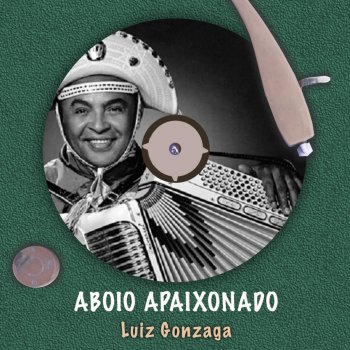Paroles et traduction Luiz Gonzaga - O abc do sertão
Lá
no
meu
sertão
pro
caboclo
lê
Over
in
my
sertão,
for
the
caboclo
to
read
Tem
que
aprender
um
outro
ABC
He
has
to
learn
another
ABC
O
jota
é
ji,
o
éle
é
lê
The
“J”
is
“ji”,
the
“L”
is
“lê”
O
ésse
é
si,
mas
o
érre
The
“S”
is
“si”,
but
the
“R”
Tem
nome
de
rê
Is
called
“rê”
O
jota
é
ji,
o
éle
é
lê
The
“J”
is
“ji”,
the
“L”
is
“lê”
O
ésse
é
si,
mas
o
érre
The
“S”
is
“si”,
but
the
“R”
Tem
nome
de
rê
Is
called
“rê”
Até
o
ypsilon
lá
é
pssilone
Even
the
“Y”
there
is
“pssilone”
O
eme
é
mê,
O
ene
é
nê
The
“M”
is
“mê”,
the
“N”
is
“nê”
O
efe
é
fê,
o
gê
chama-se
guê
The
“F”
is
“fê”,
the
“G”
is
called
“guê”
Na
escola
é
engraçado
ouvir-se
tanto
"ê"
In
school,
it's
funny
to
hear
so
much
"ê"
A,
bê,
cê,
dê,
A,
bê,
cê,
dê,
Fê,
guê,
lê,
mê,
Fê,
guê,
lê,
mê,
Nê,
pê,
quê,
rê,
Nê,
pê,
quê,
rê,
Tê,
vê
e
zê.
Tê,
vê
and
zê.
Lá
no
meu
sertão
pro
caboclo
lê
Over
in
my
sertão,
for
the
caboclo
to
read
Tem
que
aprender
um
outro
ABC
He
has
to
learn
another
ABC
O
jota
é
ji,
o
éle
é
lê
The
“J”
is
“ji”,
the
“L”
is
“lê”
O
ésse
é
si,
mas
o
érre
The
“S”
is
“si”,
but
the
“R”
Tem
nome
de
rê
Is
called
“rê”
O
jota
é
ji,
o
éle
é
lê
The
“J”
is
“ji”,
the
“L”
is
“lê”
O
ésse
é
si,
mas
o
érre
The
“S”
is
“si”,
but
the
“R”
Tem
nome
de
rê
Is
called
“rê”
Até
o
ypsilon
lá
é
pssilone
Even
the
“Y”
there
is
“pssilone”
O
eme
é
mê,
O
ene
é
nê
The
“M”
is
“mê”,
the
“N”
is
“nê”
O
efe
é
fê,
o
gê
chama-se
guê
The
“F”
is
“fê”,
the
“G”
is
called
“guê”
Na
escola
é
engraçado
ouvir-se
tanto
"ê"
In
school,
it's
funny
to
hear
so
much
"ê"
A,
bê,
cê,
dê,
A,
bê,
cê,
dê,
Fê,
guê,
lê,
mê,
Fê,
guê,
lê,
mê,
Nê,
pê,
quê,
rê,
Nê,
pê,
quê,
rê,
Tê,
vê
e
zê.
Tê,
vê
and
zê.
SOLO
SOLO
Até
o
ypsilon
lá
é
pssilone
Even
the
“Y”
there
is
“pssilone”
O
eme
é
mê,
O
ene
é
nê
The
“M”
is
“mê”,
the
“N”
is
“nê”
O
efe
é
fê,
o
gê
chama-se
guê
The
“F”
is
“fê”,
the
“G”
is
called
“guê”
Na
escola
é
engraçado
ouvir-se
tanto
"ê"
In
school,
it's
funny
to
hear
so
much
"ê"
A,
bê,
cê,
dê,
A,
bê,
cê,
dê,
Fê,
guê,
lê,
mê,
Fê,
guê,
lê,
mê,
Nê,
pê,
quê,
rê,
Nê,
pê,
quê,
rê,
Tê,
vê
e
zê.
Tê,
vê
and
zê.
Évaluez la traduction

1
Aboio Apaixonado
2 Tacacá
3 Braia Dengosa
4 Forró no Escuro
5 Comício de mato
6 Vassouras
7 O Delegado no Coco
8 Xote das Mocas
9 Sertâo Sofredor
10 Moca de Feira
11 Meu Pajeú
12 Gibão de Couro
13 Acauã
14 O abc do sertão
15 Saudade De Pernambuco
16 O Xote Das Meninas
17 Respeita Januário
18 Paraíba
19 Chorão
2 Tacacá
3 Braia Dengosa
4 Forró no Escuro
5 Comício de mato
6 Vassouras
7 O Delegado no Coco
8 Xote das Mocas
9 Sertâo Sofredor
10 Moca de Feira
11 Meu Pajeú
12 Gibão de Couro
13 Acauã
14 O abc do sertão
15 Saudade De Pernambuco
16 O Xote Das Meninas
17 Respeita Januário
18 Paraíba
19 Chorão
Attention! N'hésitez pas à laisser des commentaires.